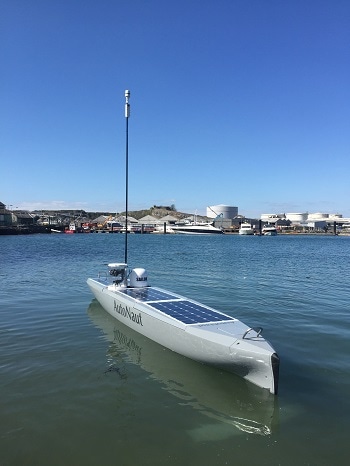A Letchworth prototyping company has helped revolutionise the way oceans are monitored for future weather reports.

Hertfordshire firm Ogle was asked to develop a cutting-edge remote controlled drone which could be used at sea.
Historically, recording data sourced from the sea is also how ocean mapping and marine biology studies are formed.
Ogle was asked to create the intricate bow and tail fins for the unmanned surface vessel (USV), which needed to be precise so the model could be accurately tested.
“The material and production process also needed to guarantee that the final part would be non-porous which meant the model could be tested accurately.
“We are extremely proud to have been selected to produce these parts for the MOST Autonomous Vessels (AV), the leading innovator of autonomous drones. The company’s products have become so integral to research and understanding more about our oceans.”
We understood the importance of accuracy on this project. There was no room for error because the parts we were asked to develop made up 30 per cent of the prototype.
Dave Bennion, Marketing and Sales Director at Ogle
Ogle used laser sintering (LS) which is one of the most accurate additive manufacturing processes available.
It involves using a special laser, which traces the required shape – from a 3D CAD model– across a compacted powder bed of material.
The parts were then put through a vigorous process to ensure the quality of the surface finish was exact and water-proof.
We have previously worked with Ogle on a number of different projects, but this was the first larger job. Their price was competitive and the range of machines and tools they have is extremely impressive.
Dan Alldis, Design Manager at MOST AV
“They have led the way in 3D printing for years, building a very impressive portfolio. It made sense to work with the experienced team at Ogle for this project. We have an order going through for three more parts since the completion of the bow and tail fins, and would not hesitate to work with them on future projects.”
The AutoNaut has since completed a four-day trial from Plymouth, UK carrying Met Office sensors, which were used to test the viability of collecting forecasting data in a new and more cost-effective method.
Experts now predict that within five years, swarms of these remote controlled vessels will be at sea for months at a time gathering data from around the globe.
It is thought they will provide a priceless resource to many of the world’s research industries.
For more information about Ogle visit www.oglemodels.com.